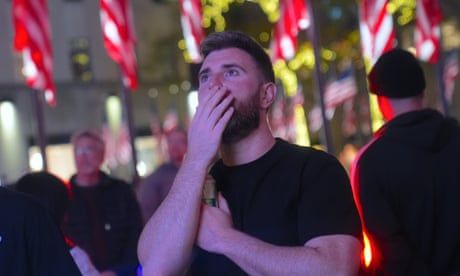
Even after a failed coup and numerous legal wranglings, many men could not bring themselves to vote for a woman
“It’s bitter in the mouth, the racial and gender dimension of this.” This was Van Jones, the CNN political analyst and a Black American, speaking at 3.10am EST the night of the US election. To his right, David Axelrod, the former senior adviser to Barack Obama, maintained what in the circumstances looked like a supernatural composure, as if through sheer civility he might put this right. The CNN anchors, 14 hours into their marathon shift, were deep into that adrenalised territory where no human sentiment survives. Jones looked as if he was going cry.
I had woken at 4.30am GMT, glanced at the blizzard of messages stacked up on my phone, and had the thought that for as long as I didn’t know what had happened, nothing had happened at all. Isn’t this a basic philosophical principle? The night before, things had looked good. In the past two weeks of the election Trump had seemed, even by his standards, to have gone completely off the beam. The shock poll in Iowa had augured a popular swing from the right towards Harris. Men, who support Trump in larger numbers than women, can sometimes be relied upon to skip voting.
Continue reading...